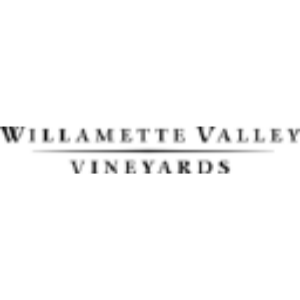Welcome to our dedicated page for Willamette Vy Vineyard news (Ticker: WVVI), a resource for investors and traders seeking the latest updates and insights on Willamette Vy Vineyard stock.
Willamette Valley Vineyards Inc (WVVI) delivers premium wines through integrated vineyard operations and a multi-brand strategy. This page provides investors and industry observers with direct access to official company announcements, financial disclosures, and operational developments.
As a centralized resource for WVVI updates, users will find curated press releases, earnings reports, and news about product launches or vineyard expansions. The collection emphasizes timely, factual information to support analysis of the company’s market position and growth initiatives.
Key categories include financial performance updates, new wine varietal releases, sustainability initiatives, and hospitality program developments. All content is sourced from verified company communications to ensure accuracy and relevance.
Bookmark this page for streamlined access to WVVI’s latest developments. Check back regularly for updates on Oregon wine industry leadership and the company’s dual-channel distribution strategy.
Willamette Valley Vineyards (NASDAQ: WVVI & WVVIP) has appointed Greg Urmini as Director of Winemaking & Vineyards, tasked with overseeing the winery and 500 acres in production across Oregon. Urmini, previously with Paul Hobbs Winery, brings extensive experience that includes managing a winery that achieved 100-point scores. His leadership comes amid the construction of a new state-of-the-art winery in the Dundee Hills, signifying the company's commitment to growth. The winery is also supported by over 20,000 enthusiastic owner-investors and recently launched a $10.7 million offering for expansion.
Willamette Valley Vineyards (NASDAQ:WVVI) reported a significant increase in income applicable to common shareholders for Q2 2021, totaling $715,045, reflecting a growth of 96.5% compared to Q2 2020. Sales revenue surged 60.7% to $8,949,951, driven by distributor sales and direct consumer sales. Gross profit also rose by 46.8% to $5,139,723. However, selling and administrative expenses increased by 40.9% to $3,602,129. Net income for the quarter was reported at $1,077,551, a 73.7% increase from the previous year.
Willamette Valley Vineyards (NASDAQ: WVVI, WVVIP) will host the finale of Bravo's Top Chef Season 18, airing on July 1, 2021, at 8 PM PT. The event showcases finalists creating a four-course meal in Oregon's renowned wine country. This selection highlights Oregon's culinary excellence and provides exposure during a challenging year for the restaurant industry. The winery emphasizes its sustainable practices and community ownership, with shares available for investment at $5.05 each, offering a 4.36% dividend until September 30, 2021, after which the price increases to $5.15.
Willamette Valley Vineyards plans to build a new winery in the Dundee Hills, enhancing its production capabilities. This facility will serve as the primary site for the company's various brands, including the upcoming Domaine Willamette sparkling brand expected in Spring 2022. The company is also seeking a new Director of Winemaking and Vineyards to oversee operations and expansion. Additionally, four new restaurant locations in Oregon and Washington are planned, aimed at increasing brand visibility and customer engagement.
Willamette Valley Vineyards (NASDAQ: WVVI) reported a loss of $0.05 per common share for Q1 2021, compared to a profit of $0.11 in Q1 2020, marking an 84.4% drop in net income to $122,685. Sales revenue fell by 11.6% to $5,765,338 due to decreased distributor shipments, despite a rise in direct sales. Gross profit also declined by 10.7% to $3,493,567. Additionally, selling, general, and administrative expenses increased by 17.2% to $3,317,558. The company is expanding production capacity and developing new winery restaurants in Oregon, aiming to meet increasing demand.
Willamette Valley Vineyards, Inc. (NASDAQ:WVVI) reported a significant increase in financial performance for the year ended December 31, 2020. The income per common share rose to $0.46, a 53.5% increase from $0.30 in 2019. Net sales revenues increased 10.4% to $27,314,852, driven by direct sales and distributor revenue growth. Net income grew 35.2% to $3,394,996. Although selling, general, and administrative expenses rose 1.4% to $11,728,003, the company achieved a gross profit of $16,729,776, up 9.4% year-over-year.
Willamette Valley Vineyards reported third-quarter 2020 income of $640,347 ($0.13/share), a 7.5% increase from $595,748 ($0.12/share) in Q3 2019. Sales revenue rose 2.4% to $6,918,131, driven by a $265,018 increase in direct sales, although distributor sales fell by $105,254 due to COVID-19 restrictions. Gross profit climbed 3.9% to $4,221,197. Selling and administrative expenses increased by 4.6% to $2,917,363. Net income for the quarter was $896,799, up 5.2%. The company continues to see resilient performance despite ongoing pandemic challenges.
Willamette Valley Vineyards (NASDAQ: WVVI) has declared a cash dividend of $.22 per share on its Series A Redeemable Preferred stock (NASDAQ: WVVIP). The dividend is payable on December 31, 2020, to shareholders of record by the close of business on December 7, 2020. Shares issued after January 1, 2020 will receive a prorated dividend based on their issue date. The company warned that forward-looking statements may be impacted by various risks including financing availability, grape quality, competition, and regulatory changes.
Willamette Valley Vineyards reported a significant increase in income for Q2 2020, totaling $363,969 or $0.07 per share, up from $103,459 or $0.02 per share in Q2 2019, marking a 251.8% rise. Despite this, sales revenue decreased 3.8% year-over-year to $5,568,654. This decline resulted from lower direct and distributor sales due to COVID-19 restrictions. Gross profit increased marginally by 0.1%, while selling, general and administrative expenses saw an 11.9% reduction. Net income rose 72.4% from the previous year, highlighting the company's resilience amid challenges.
Willamette Valley Vineyards (NASDAQ: WVVI & WVVIP) will discuss the effects of the pandemic and state-mandated shutdowns on its operations during its Annual Shareholder Meeting on July 17, 2020, at 1 pm PT. This meeting is significant as it will be the first held virtually. Founder Jim Bernau expresses eagerness to share insights with stockholders and wine enthusiasts. The winery, located in Oregon, has established itself as a prominent Pinot Noir producer, emphasizing sustainable practices.

